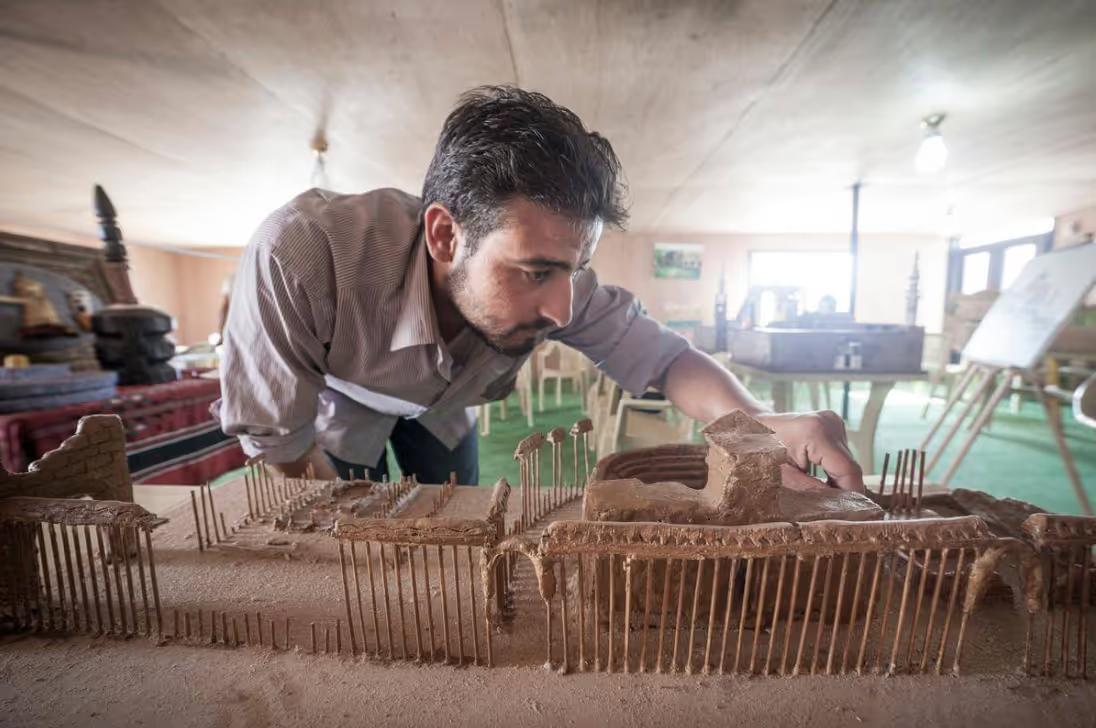Citizen-based approach to safeguard historical sites - lessons from conservation

[caption id=attachment_8578" align="alignleft" width="300"]

Local heroes in environmental conservation as highlighted by the Whitley Awards[/caption]
Conservation is a journey not a destination, but each Spri 7 Whitley Award winners share their journeys with their peers and a wider audience at the Royal Geographical Society.
For anyone seeking to be a ‘changemaker’ as the Ashoka Foundation like to describe social entrepreneurs, these stories are completely captivating. They often begin with that moment that triggered their consciousness that something must be done- and then that realisation if not now, when? And if not oneself, who?
The Whitley Awards is a celebration of local heroes, working with communities all around the developing world, often defying the odds, and knowing that lots of little actions – small battles won – will ultimately lead to a much greater victory for conservation. The Whitley Awards are there to help them by providing funding, training and an international boost in profile.
In doing so, this also creates an extraordinary network of people, innovations and causes. Sometimes they are champions of a single species - a bellwether for the health of a whole habitat, and whose own survival will ensure the survival of many other species beneath their ‘umbrella’; others worked amongst communities and schools to raise awareness of our interdependence and sustainable ways out of poverty.
Recent Award winners include Ananda Kumar who is using mobile phones and SMS messaging to reduce conflict between communities and the wild elephant herds in Southern India, work that is saving lives; Jayson Ibanez is helping to protect the last of the 400 nesting pairs of Philippine eagle – a national symbol and victim of the inexorable deforestation; Rosamira Guillen who after learning of its plight is protecting the aptly-named cotton-topped tamarin in Colombia; Inaoyom Imong, hunter turned conservationist working in the forests of southeastern Nigeria to protect the Cross River Gorilla; Pramod Patil, doctor turned zoologist, working with communities in the Thar desert to protect the Great Indian Bustard; Arnaud Desbiez, who has ended up becoming one of the world’s experts on the Giant Armadillo of Brazil and understanding how to help this species survive as it teeters on the verge of extinction; Panut Hadisiswoyo who is planting trees and rescuing Orangutans in Indonesia; and Gold Award winner, Dino Martins, an entomologist from Kenya making a difference to the lives of farmers and insects in East Africa and shaping national and international policy on pesticides.
[caption id="attachment_8577" align="alignleft" width="300"]

2014 Whitley Gold Award winner, Jean Wiener receives his award from Princess Anne[/caption]
How are these people relevant to Humanitarian Innovation? Some of them have led their initiatives in some of the poorest, most disaster prone countries in the world. For over 20 years, local Haitian, and 2014 Whitley Gold Award winner, Jean Wiener, has worked tirelessly to address the severe environmental issues affecting his country.
Haiti is the poorest nation in the western hemisphere with 80% of Haitians living in poverty. Just 1% of Haiti’s original forest cover remains and, without the development of sustainable income generating alternatives, damaging activities such as over fishing, mangrove loss and the development of salt pans will continue to threaten biodiversity in Haiti’s fragile coastal and marine ecosystems.
Haiti has 1800km of coastline. Before Jean started his work there was no organisation protecting Haiti’s fragile resource. But Jean has now engaged the Haitian government to achieve environmental monitoring, management, and protection. Just as important, many of the coastal communities struggling to survive, now have the knowledge, the tools and the income generating schemes to not only survive, but to work towards sustaining the resources their very future depends on.
With his NGO, FoProBim, Jean focuses on addressing the needs of local communities through education, conflict resolution, and livelihood development. His work has led to the creation of Haiti’s first two Marine Protected Areas. As such conservation and poverty reduction go hand-in-hand.

Who are these champions working in more traditional humanitarian settings? I was struck by the work of Mahmoud Hariri who has been recreating Syria’s lost heritage for children in Zaatari refugee camp.
His work in Zaatari refugee camp has inspired our field project in Djenne, Mali; looking at ways to help communities protect endangered heritage sites. Who knows where the ripples of Mahmoud Hariri ‘s inspiration will end. Find out more.
Stay updated
Sign up for our newsletter to receive regular updates on resources, news, and insights like this. Don’t miss out on important information that can help you stay informed and engaged.
Related articles


.png)
Explore Elrha
Learn more about our mission, the organisations we support, and the resources we provide to drive research and innovation in humanitarian response.